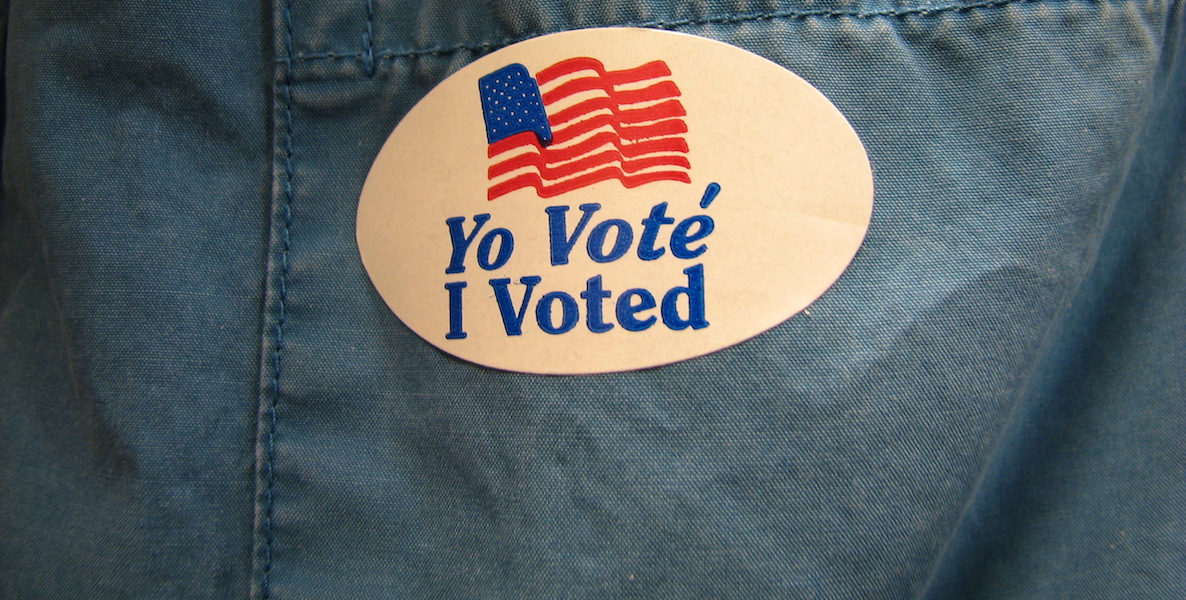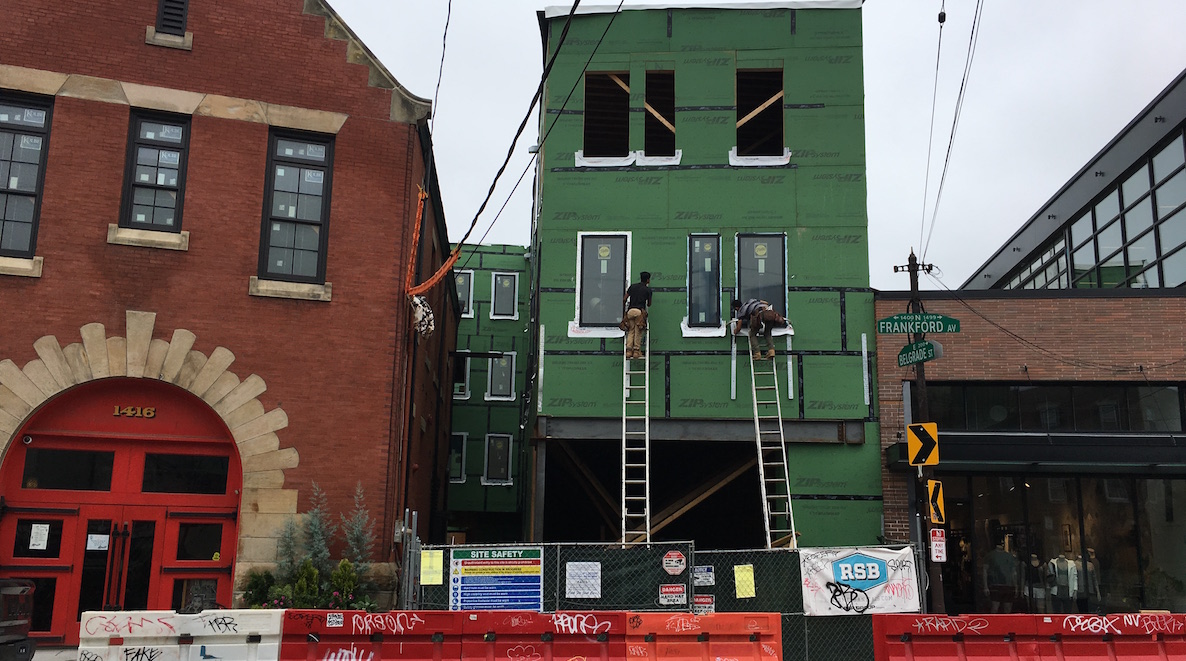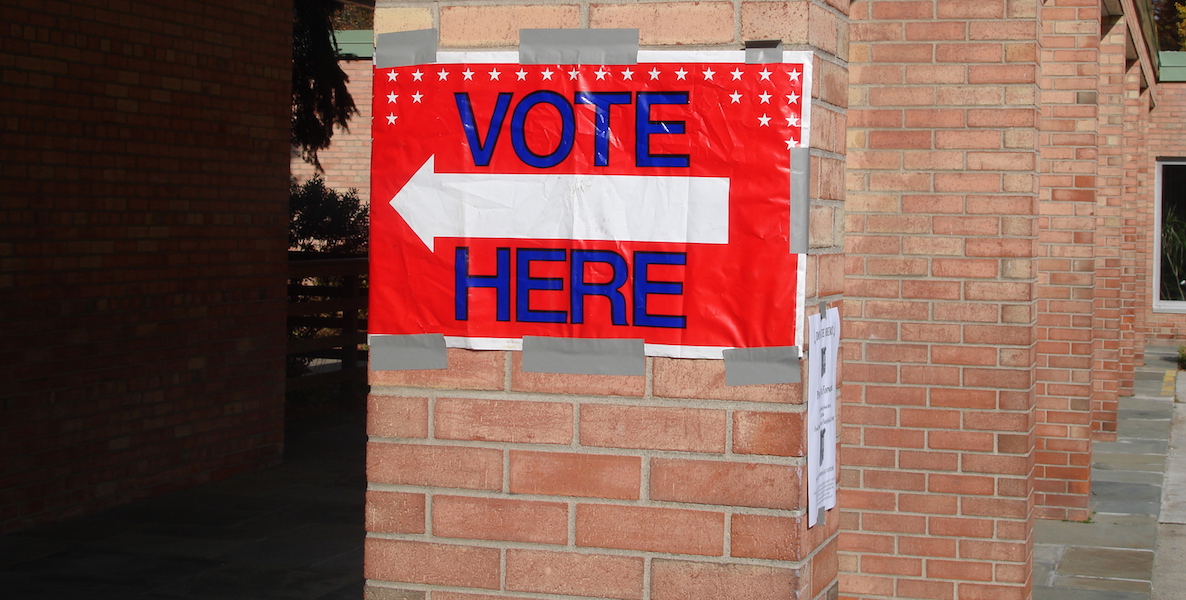With the 2018 midterms coming up tomorrow, the time is ripe for serving up some piping hot election predictions. Here are four wild guesses about what’s going to happen:
- Tom Wolf will win reelection with over 60 percent of the vote
The race for Governor had been closer in the summer, but the late-breaking momentum appears to strongly favor Democratic incumbent Tom Wolf. Wolf has stayed in the lead the entire race against Republican nominee Scott Wagner, but even earlier this fall he was in the low 50’s. Wagner’s been taking a lot of heat for his business practices as the owner of Penn Waste, which has a penchant for suing residents who fall even slightly behind on their trash bills. In response to this criticism, Wagner cut a campaign video a few weeks ago where he said he wanted to stomp all over Tom Wolf’s face with golf spikes. Then just today, a couple of campaign ads shelved by Paul Mango’s primary campaign surfaced, highlighting other violent incidents from Wagner’s not-so-distant past. In the first poll after this incident, Wolf widened his lead to 59-33, according to Franklin & Marshall. He’s probably going over 60 on Election Day.
- Women will go from 0 Congressional seats to 5
As everyone knows, there isn’t even one women in Pennsylvania’s Congressional delegation. This fact would be depressing enough on its own, but it is somehow made even worse when you consider the broader context. Since 1789, Pennsylvania has been represented by just over 1,400 people in the US House of Representatives. Those Members of Congress have served roughly 5,900 years between them. Shockingly, only seven — or 0.5 percent — of those US Reps have been women, serving 31 years — again, 0.5 percent — of that time. Check out the data here.
But this election season, five women are going to win: Madeleine Dean (4th District), Mary Gay Scanlon (5th District), Christina Houlahan (6th District), Susan Wild (7th District) and, in one bigger upsets of the night, Jess King (11th District). Although these women can make only the smallest dent in the those pitiful representation stats, they will completely recalibrate the dynamics of our delegation, and will put Pennsylvania in a position to have gender parity in 2022, when candidates will be running for 17 newly re-mapped seats.
- Democrats will win 100 seats in the state House, but won’t win the chamber
Looking at the Democrats’ severe electoral deficit in both houses of the state legislature, it seems crazy to bet on the party taking control of either Chamber. But they’re going to get a lot closer, at least in the House, than most people are thinking. Republicans saw a wave of retirements, including in some key districts that voted for Hillary Clinton, but where long-time reps down-ballot had hung on in 2016 in large part due to the power of incumbency and ticket-splitting.
You guessed it, vote! Do Something
Sixty-Six Wards blogger Jonathan Tannen’s model originally had the state House as a toss-up, but then he walked that back by introducing stronger incumbency effects, and the model is now giving Dems only a 13 percent chance of taking the House, with an average result of 107 seats for Republicans and 96 seats for Democrats.
Crazy things happen in wave elections though, so it’s certainly possible that Dems could pick up seats they would ordinarily have no business winning. A poll came out this week for the 16th Congressional District race, for instance, showing Democrat Ron DiNicola with a 5-point lead on Rep. Mike Kelly, in a deep red seat in western PA. Kelly was one of the first Republican elected officials to endorse Donald Trump in the Republican primary, to give you a sense of how conservative his District is. Crazy, nonsensical stuff is going to happen. So with a record number of contested races, it’s at least plausible Democrats will have a few more complete surprises and lucky breaks that put them within striking distance in the House, or even take the majority outright.
Although these women can make only the smallest dent in the those pitiful representation stats, they will completely recalibrate the dynamics of our delegation, and will put Pennsylvania in a position to have gender parity in 2022.
- Philadelphia is going to have a more impressive and unified Harrisburg delegation
Don’t look now, but the gripe about Philadelphia’s ineffectual Harrisburg delegation has quickly become outdated. Over the past few cycles there’s been a whole youth movement gaining momentum one seat after another, giving us some pretty talented politicians like Brian Sims, Kevin Boyle, Jason Dawkins, Jordan Harris, Jared Solomon, Morgan Cephas, Donna Bullock, and Joanna McClinton. This year, that group is certain to grow its ranks by at least three more with the addition of Malcolm Kenyatta, Elizabeth Fiedler, and Danilo Burgos. And in the southeastern counties, there are a number of younger politicians, mostly women, like Jennifer O’Mara, Melissa Shusterman, Kristin Seale, Katie Muth, and more who would bring some dynamic thinking and badly-needed gender balance to the state legislature.
The generational turnover is particularly welcome since the balance of power in the Democratic House leadership is tilted heavily toward Western PA, even though most of the Democratic votes statewide are increasingly found in southeast PA. With a lot of the older Party leadership beginning to age out of office, the southeast PA delegation, and especially Philadelphia, are going to be pretty well set up to run the legislative party over the next few years, with important consequences for policymaking and especially regional politics.
Jon Geeting is the director of engagement at Philadelphia 3.0, a political action committee that supports efforts to reform and modernize City Hall. This is part of a series of articles running in both The Citizen and 3.0’s blog.
Photo via Flickr







